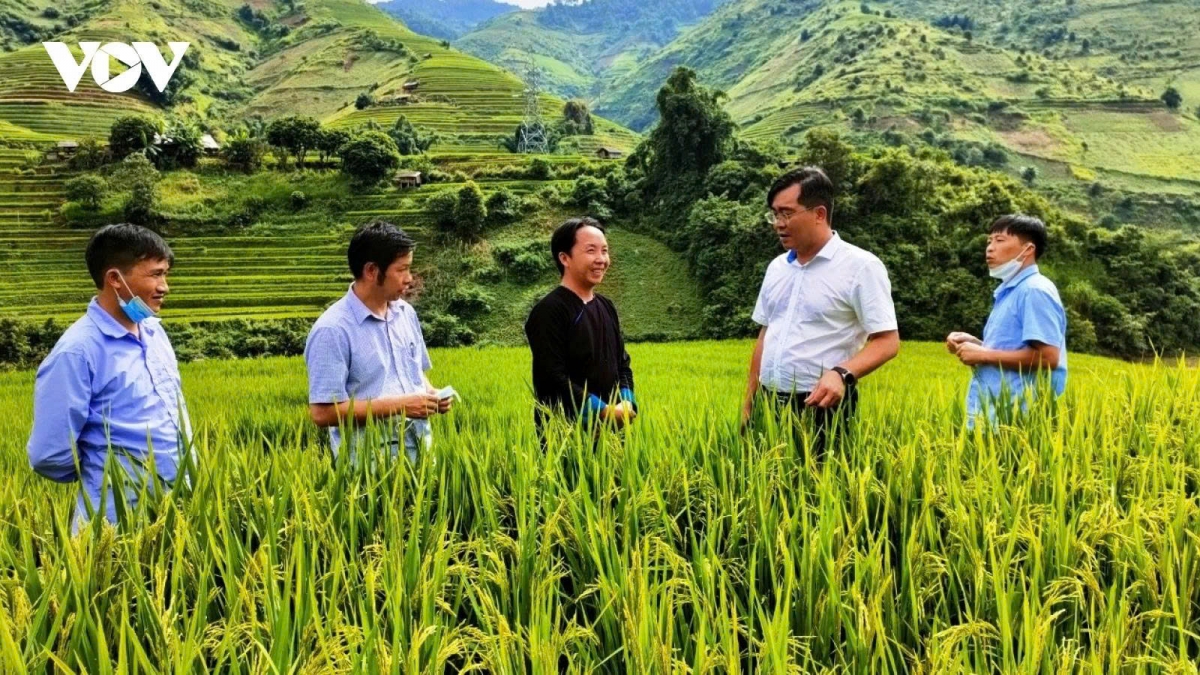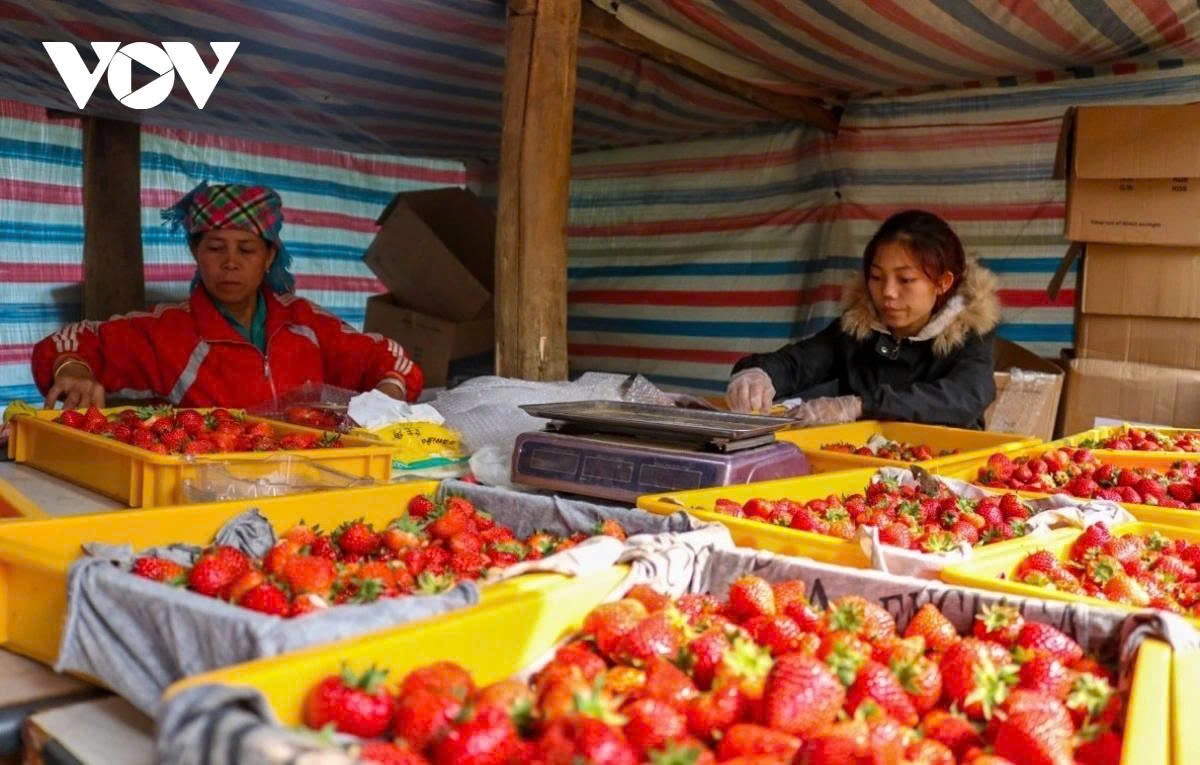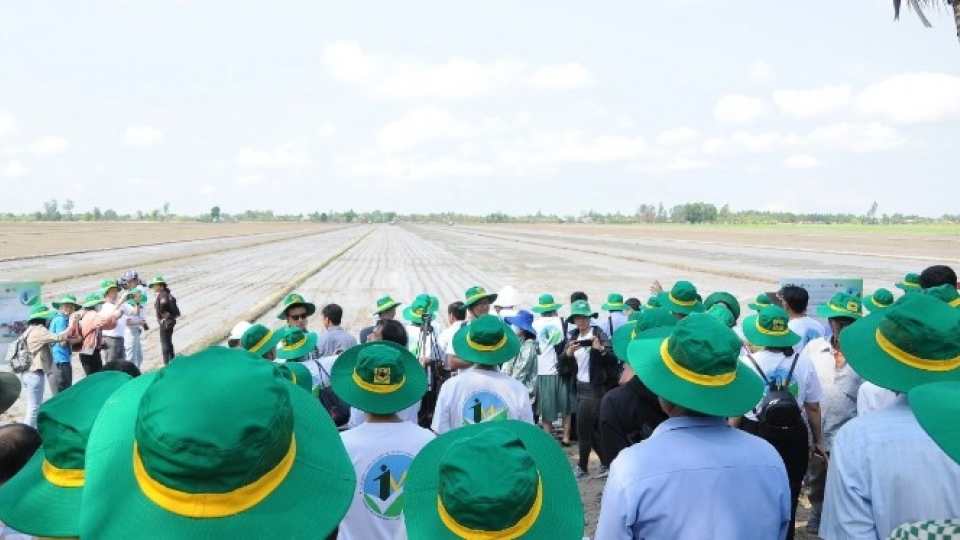Circular agriculture - a must for Vietnam's green future
VOV.VN - In response to the growing impacts of climate change, the transition toward a green economy, particularly green and circular agriculture, has become an inevitable development trend, said experts at a forum in Hanoi on July 16.

In his opening remarks, Hoang Quang Phong, vice president of the Vietnam Chamber of Commerce and Industry, noted that developing a circular economy in agriculture is not only a requirement but also a key driver toward building a green, low-cost, low-emission agricultural sector that enhances value chains. This trend meets Vietnam’s international commitments, especially within new-generation Free Trade Agreements, and the context of the Fourth Industrial Revolution.
According to Phong, the shift from a traditional linear economy that follows the “take – make-consume – throw away” approach to a circular economy based on the “reduce–reuse–recycle” model enables the optimisation of resources, reduces pollution, lowers production costs, and drives innovation and efficiency in agricultural production.
However, this transformation faces significant challenges, such as limited access to land, credit and insurance; small-scale farming; low consumer confidence in organic products; and limited technological capacity.
To overcome these obstacles, he called for the active involvement of government, businesses, and farmers. The State should play a guiding role in perfecting legal frameworks, offering preferential policies, facilitating land access and finance, and piloting contract-based credit models linking banks, enterprises, cooperatives, and farmers. Most importantly, strong and sustainable value chains must be developed, with businesses acting as leading forces to connect and support farmers.
At the forum, Le Duc Thinh, director general of the Agency for Cooperatives and Rural Development under the Ministry of Agriculture and Environment, highlighted the crucial role of circular agriculture in ensuring food security and sustainable rural development in Vietnam. Traditional circular agricultural models such as "garden–pond–livestock" and "garden–pond–forest" systems have been formed in Vietnam, which should now be enhanced with modern science, technology, and management.
In his opinion, the growing domestic and international demand for green, circular, and low-carbon agricultural products, along with the initial proactive engagement of pioneering businesses and cooperatives, has created enormous potential to accelerate the development of circular agriculture in Vietnam. However, the current recycling and reuse rate remains low, at less than 35%, and mostly limited to small-scale, fragmented operations, leading to emissions and environmental pollution.

Furthermore, he said, the lack of standardized systems, national processes, and regulations, such as labels or certification schemes for circular agricultural products, poses challenges. The absence of reliable certification increases risks and reduces investment efficiency for enterprises and cooperatives.
He pointed out that the national goal through 2030, with a vision toward 2050, is to optimise input resource use, recycle over 70% of agricultural by-products that doubles the current rate, reduce greenhouse gas emissions, minimise waste, and increase the use of renewable energy. Key sectors such as rice, coffee, and livestock are expected to lead in implementing circular practices.
To further advance circular economy models in agriculture, Thinh recommended the development and issuance of a dedicated national strategy on circular agriculture, alongside building an ecosystem for green innovation and investment. This strategy should be integrated into the value chains of key agricultural sectors and aligned with Vietnam’s net-zero goals.
In addition, he stressed the need to establish clear procedures, standards, and certification systems to officially recognise circular agricultural products. He also proposed comprehensive support from production to consumption, aimed at fostering the development of markets for circular agricultural products, paving the way for a modern, sustainable, and globally competitive agricultural sector in line with the green economy trend.
The Agriculture Forum 2025 provided a platform for policymakers, experts, businesses, and farmers to discuss and propose practical solutions for advancing circular agriculture. Delegates agreed that circular agriculture is the key to realising Vietnam's strategy for green growth, environmental protection, and sustainable development. More than a trend, it is a long-term strategy that offers real benefits to farmers, cooperatives, and agribusinesses, while affirming Vietnam’s commitment to the international community.
All recommendations from the forum would be compiled by the Vietnam Chamber of Commerce and Industry and reported to the Government to help improve regulatory frameworks and support the green transformation of the agricultural sector.





